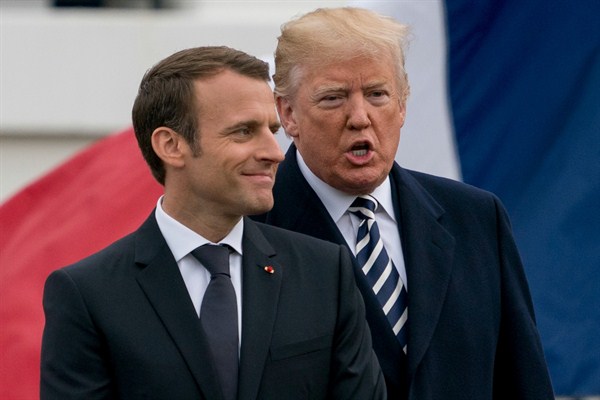In his staunch defense of multilateralism delivered to the U.S. Congress earlier this week, French President Emmanuel Macron expressed his hope that the United States would not in fact leave the landmark Paris agreement on fighting climate change, as President Donald Trump has declared. Macron’s appeal to the need for active American leadership underscores only one of the obstacles to an effective global response to this urgent environmental threat.
Some of these challenges are inherent in the mechanics of a long and overdue transition to lower-carbon forms of energy. Others are due to political decisions made by global economic powers, especially the United States. But the urgency is there. According to the Mercator Research Institute on Global Commons and Climate Change, the planet can burn about 708 gigatons of carbon dioxide—or about 17 years at current trends—before it reaches a point where it has surpassed the threshold of a 2-degree Celsius rise in average global temperatures that the Paris agreement is aiming to prevent.
Yet three factors continue to undermine the effectiveness of international action against climate change. The first is that emissions growth is not as decoupled from economic growth as many analysts thought in the past few years. From 2014 to 2016, the global economy grew, while global carbon dioxide emissions were flat, suggesting that the global economy could grow without adding to the burden on the climate. In 2017, however, that decoupling trend ended, as emissions grew, thanks to increasing global demand for all sources of energy. A long-term trend of rising economic growth without rising emissions growth will be an important milestone for the developing world, in particular. It would mean that the poorest nations can, for example, expand access to electricity without copying the developed world’s carbon-intensive model of economic growth.

